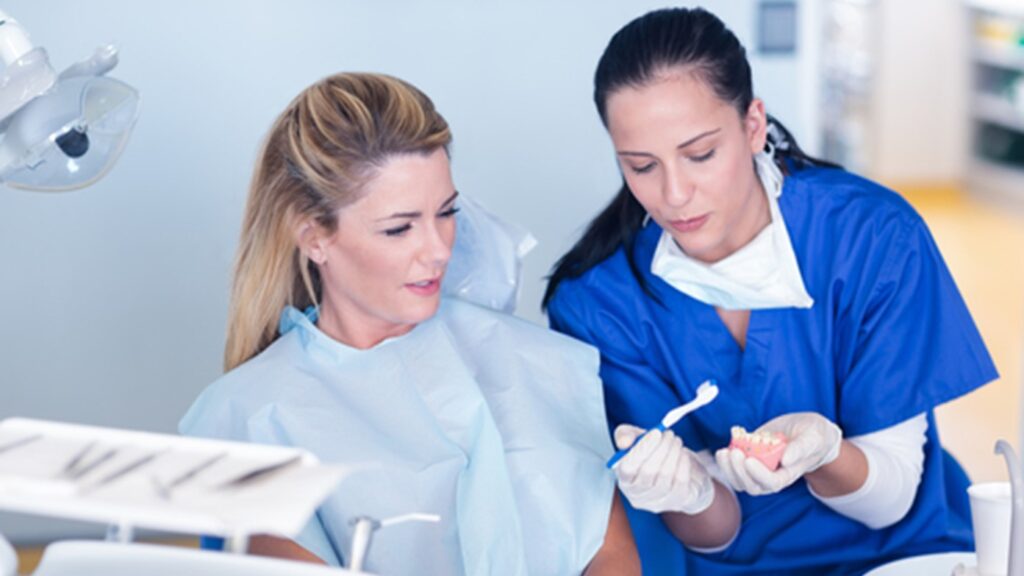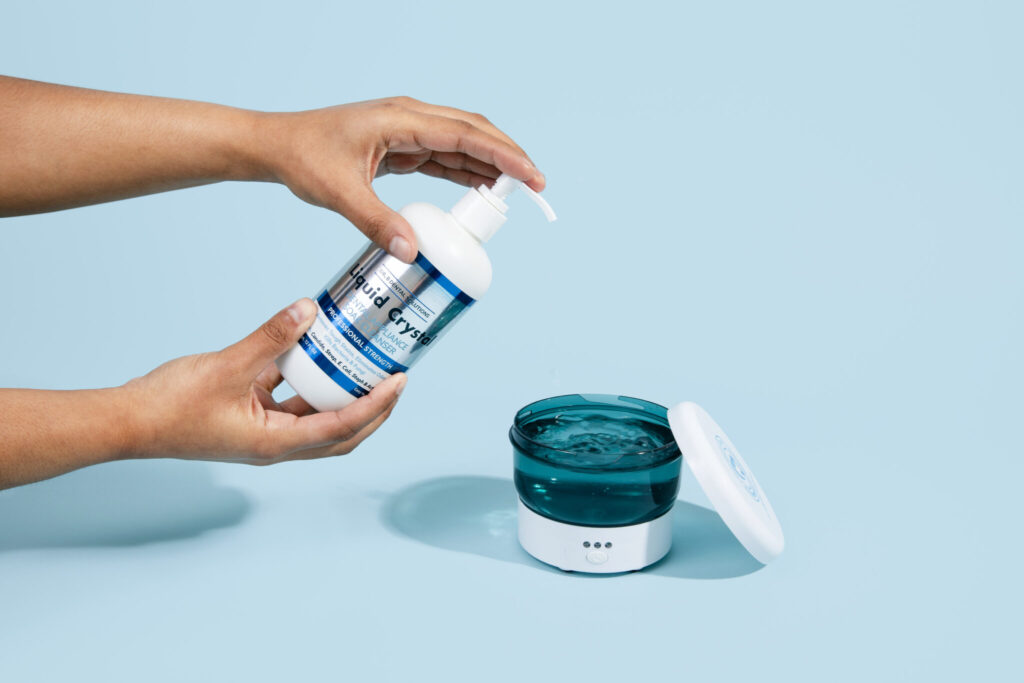
Oral health is inextricably linked to overall health and wellness. That is why proper dental hygiene is critical to our ongoing welfare. This is particularly true for denture wearers, as they are at a higher risk for oral, respiratory, and digestive infections. Candida Albicans, Streptococcus, Staphylococcus, E. coli, and Actinomyces can colonize and accumulate on dentures over time, posing significant risks of chronic infections that can develop into serious acute illnesses.
Dry mouth, one of the most common problems associated with dentures, increases the risk of infections and other health problems even further as saliva plays a crucial role in stabilizing and keeping the denture in place while concomitantly preventing soft tissue abrasion. Reduced saliva production can lead to soreness, irritation, and even halitosis. Thus, oral hygiene is crucial for denture wearers, as poor care can lead to discomfort, malnutrition, and possibly life-threatening infections.
Homecare is the Key
Dental professionals take pride in crafting high-quality dentures for patients. However, the journey cannot end when patients leave the practice with their new prostheses. Without proper care, denture-wearers face a variety of risks that can greatly impact their health, and hence their quality of life. The key to ensuring long-term satisfaction and oral health is to equip patients with the knowledge and tools that they need to properly care for their dentures. (Fig. 1)
Fig. 1

The symptoms of infection in the absence of proper oral hygiene: bad breath, redness, discomfort, white tongue, respiratory issues, and loss of taste/smell, often become a “new normal” that is subconsciously accepted by the denture-wearer, significantly impacting quality of life. Establishing an effective oral hygiene routine with denture patients is therefore crucial. (Fig. 2)
Fig. 2

Several factors increase the risk of oral infections in denture wearers: advanced age, deleterious habits, alcohol and tobacco use, certain medications and existing health issues (diabetes, Sjogren’s, and Lupus, among others). Patients with obstructive sleep apnea who use airway devices often share comorbidity factors with denture wearers.
One of the best ways that dental professionals can ensure patient health, satisfaction and treatment success is to recommend an effective daily denture cleaning and hygiene routine and to monitor for any signs of oral infection. If disease markers become apparent, it is important to take definitive measures to treat the problem and to clearly instruct the patient on regularly disinfecting their dental appliances in order to prevent reinfections. Effective oral hygiene and regular appointments can significantly reduce the risk of infection for denture wearers and improve their health, comfort, and quality of life.
Prevention Before Infection
Prevention of illness, whenever possible, is always preferable. (Fig. 3) Waiting until a patient has an infection is not acceptable as this can have deleterious effects for both patient and practice. Early introduction of suitable denture hygiene routines is crucial. This allows patients to identify and address any problems that arise. Patients seeking over the counter solutions at stores or pharmacies may not have the knowledge to identify the actual cause of their problem, leading them to select the wrong remedy products. A common treatment for thrush is an antifungal which may help with the existing infection but will not eliminate the causative denture colonies and gum biofilms. Thus, the patient will likely suffer from recurring infections. Without proper professional support, the patient is apt to blame the dental team and/or the denture itself.
Fig. 3

Despite the increasing number of people wearing dental appliances, there is little practical information available to patients about device and oral tissues care. Physicians rarely address oral health concerns. It is the dental care provider’s responsibility to educate with instructions incorporated into the standard treatment protocol. Online searches gather contradictory, ineffective, and even potentially harmful do-it-yourself treatment methods. Household products such as toothpaste, mouth rinse, bleach or dish-soap are either ineffective (best case) or downright harmful. Therefore, dental professionals must be prepared to educate their patients rather than risk letting patients search for this information on their own.
For patients who maintain a daily cleaning routine with dedicated products, they must be informed that not all products are equally effective. Many denture-soak cleansing tablets and powders only claim to “reduce stains and odor-causing bacteria”. They are ineffective at disinfecting bacterial and fungal pathogens. Dental professionals should recommend proven products to their patients. Those products that carry the ADA Seal of Acceptance have been tested to ensure their effectiveness with respect to their claims. Dr. B Dental Solutions is the only denture/dental appliance care brand to have earned multiple ADA Seals on its product line.
Dr. Andrew Johnson illustrated this when he took photos of a patient’s prostheses during follow-up visits. In just a matter of weeks, the teeth began looking worse because the patient was not cleaning them properly or regularly. The patient was given Cleanadent Paste and the Dr. B Denture Toothbrush, and within a few days the prostheses indicated a dramatic improvement in appearance, cleanliness and odor. (Fig. 4) Neglecting denture cleaning (particularly implant dentures) can impact oral health and esthetics.
Fig. 4

Incorporating Denture Cleaning Instructions in Your Standard Protocol
Dental professionals must train their staff to educate their patients. (Fig. 5) Meaningful, personalized conversations with patients on daily oral care can significantly improve their long-term health during their denture journey. Demonstrating unique, high-quality products indicates the dental team’s commitment to the patient and will build lasting trust and loyalty. Prioritizing patients’ oral health and treatment satisfaction improves their quality of life and contribute to practice growth and success.
Fig. 5

Patients value not just expertise, but also empathy and care. Dr. B Dental Solutions (Miami FL) enhances this process with starter kits customized for every type of dental appliance. Providing patients with everything they need to take care of their new appliances is an excellent way to add value to the patient experience and to show that the practice genuinely cares about their well-being. Satisfied patients are more likely to recommend their dental care provider to others with similar problems.
Oral Health welcomes this original article.
Authors Disclaimer: Dr. Lorin Berland developed Dr. B Dental Solutions to systematically improve the quality of life for denture wearers.
About the Author

Dr. Lorin Berland was a denture technician prior to earning his dental degree. In 45 years of practice, he pioneered the Dental Spa concept, was among the first to be awarded Fellowship by the AACD, and listening to denture patients.









